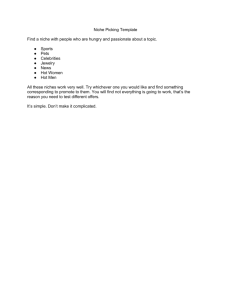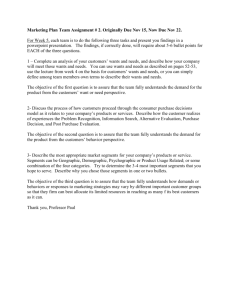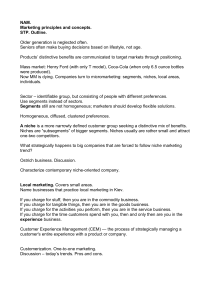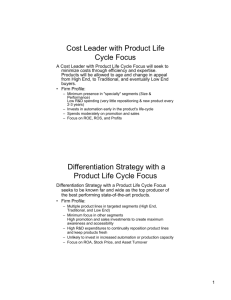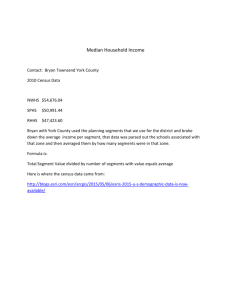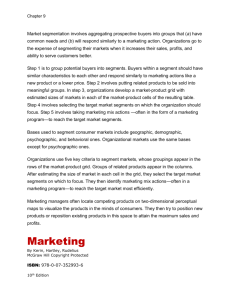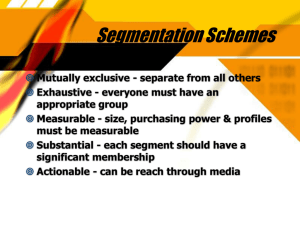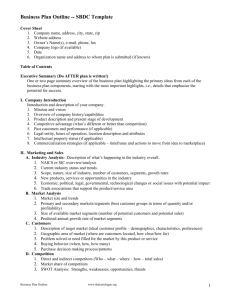file
advertisement
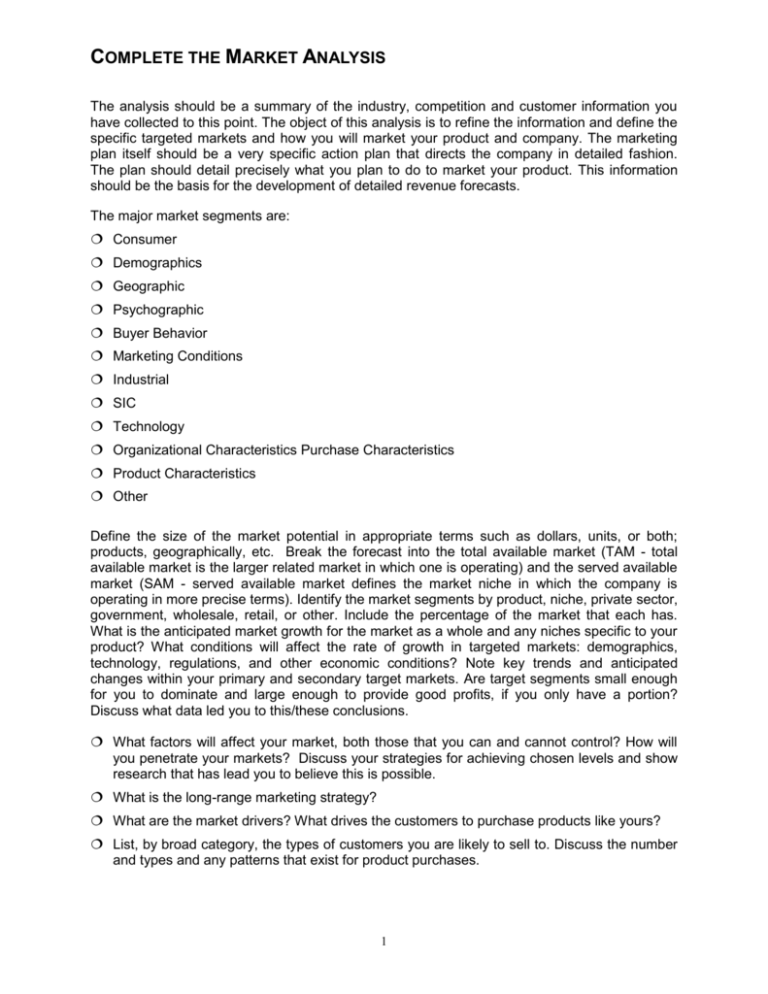
COMPLETE THE MARKET ANALYSIS The analysis should be a summary of the industry, competition and customer information you have collected to this point. The object of this analysis is to refine the information and define the specific targeted markets and how you will market your product and company. The marketing plan itself should be a very specific action plan that directs the company in detailed fashion. The plan should detail precisely what you plan to do to market your product. This information should be the basis for the development of detailed revenue forecasts. The major market segments are: Consumer Demographics Geographic Psychographic Buyer Behavior Marketing Conditions Industrial SIC Technology Organizational Characteristics Purchase Characteristics Product Characteristics Other Define the size of the market potential in appropriate terms such as dollars, units, or both; products, geographically, etc. Break the forecast into the total available market (TAM - total available market is the larger related market in which one is operating) and the served available market (SAM - served available market defines the market niche in which the company is operating in more precise terms). Identify the market segments by product, niche, private sector, government, wholesale, retail, or other. Include the percentage of the market that each has. What is the anticipated market growth for the market as a whole and any niches specific to your product? What conditions will affect the rate of growth in targeted markets: demographics, technology, regulations, and other economic conditions? Note key trends and anticipated changes within your primary and secondary target markets. Are target segments small enough for you to dominate and large enough to provide good profits, if you only have a portion? Discuss what data led you to this/these conclusions. What factors will affect your market, both those that you can and cannot control? How will you penetrate your markets? Discuss your strategies for achieving chosen levels and show research that has lead you to believe this is possible. What is the long-range marketing strategy? What are the market drivers? What drives the customers to purchase products like yours? List, by broad category, the types of customers you are likely to sell to. Discuss the number and types and any patterns that exist for product purchases. 1 Determine barriers to entry in your markets: high start-up costs, proprietary information, economies of scale, learning curve effects, brand loyalty, access to distribution channels, government regulation, etc. Accurately quantify how many customers are in each segment? Purchasing cycles and process used in the market? What media is commonly used to communicate with specific members of your target market? What experts or other sources of influence or advice givers exist in the market? What is the initial plan to obtain a market share? What resources are available or allocated to assist in penetrating the market? ALL critical statements and assumptions MUST be based on supported data with copies in the appendix. 2
